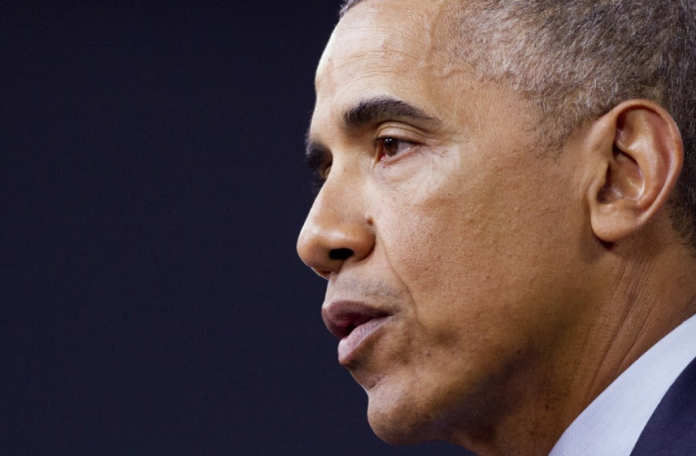
The Senate appears set to defy a last-ditch lobbying effort by the White House and Saudi Arabia by voting Wednesday to override President Barack Obama’s veto of a bill that would allow the kingdom to be sued for involvement in the Sept. 11 attacks.
Senate leaders in both parties said Tuesday they expect the vote to succeed. Congress has yet to override a veto by Obama.
“I would bet that Obama’s veto will not be sustained,” said Senate Democratic Leader Harry Reid of Nevada.
The bipartisan bill is sponsored by the No. 2 Senate Republican, John Cornyn of Texas, and the expected future Democratic leader, Chuck Schumer of New York, and it has the backing of both presidential candidates, Hillary Clinton and Donald Trump. And while several senators said Tuesday they still have concerns about the bill, which passed originally on a voice vote, none expressed confidence that the president’s veto would be sustained.
The president’s best shot might be in the House, where Armed Services Chairman Mac Thornberry of Texas urged his colleagues in a letter not to override the president’s veto.
“We ought to be careful about what we do because it has long-term consequences,” he said in an interview. But he wasn’t confident the veto would be sustained either.
“I will be voting to override it,” Nancy Pelosi of California, the House Democratic leader, said Tuesday at a news briefing.
White House Press Secretary Josh Earnest told reporters Tuesday that Obama’s concern isn’t about how a particular judge might rule on a case involving Saudi Arabia, but how the precedent of removing sovereign immunity could impact U.S. activities around the world.
“We are more engaged around the globe than any other country,” Earnest said.
Politically, however, it’s very hard for lawmakers to make an obscure argument about possible future lawsuits when Sept. 11 victims’ families are asking for their day in court, particularly with the November election around the corner.
“The president understands the passion that is on both sides of this issue,” Earnest said, but added that he believes it would endanger troops, diplomats and intelligence personnel around the world.
Secretary of Defense Ash Carter also sent Thornberry a letter Monday warning of the impact if foreign countries in turn decided to limit sovereign immunity for the U.S. He said that could potentially expose Americans to lawsuits and “an intrusive discovery process” even if the U.S. is ultimately found not to be responsible for a particular event. Carter also noted there is a risk to U.S. assets, given the large amount of U.S. government property overseas, including military bases.
Several lawmakers said they hoped the legislation could be narrowed in the future.
Tennessee Republican Bob Corker, the Senate Foreign Relations chairman who has raised concerns about the bill, told reporters that he and other lawmakers are exploring the possibility of narrowing the bill’s application to just lawsuits arising from the Sept. 11 attacks.
But until Congress votes to override Obama’s veto, “it’s impossible to create any significant policy changes,” Corker said.
Once the bill becomes law, “we may have a better opportunity to soften this,” Corker told reporters. “You are going to see suits filed very quickly” against Saudi Arabia, and some other countries are likely to move quickly to expose the U.S. to lawsuits in their courts as well, Corker said. “We may be in a much better situation” to change the measure “after it goes into effect, after people see the impact of this legislation,” he said.
That could happen in a lame-duck session or later.
Sen. Lindsey Graham, R-South Carolina, told reporters he is also trying to pursue language “that would allow the 9/11 families to move forward with their claims but also be some preventive medicine.” Lawmakers “want to help the 9/11 families but there could be some real consequences to us as a nation if we don’t think this thing through. We don’t want to lose Saudi Arabia as an ally,” Graham said. Lawmakers are “thinking about making this more of a win-win,” he said.
Despite their misgivings, both Corker and Graham said they plan to vote to override the veto. Corker said last week the bill only passed the Senate on a voice vote the first time around because members didn’t think the House would take it up. But the House sent it to the president’s desk.
Sen. Dianne Feinstein, the ranking Democrat on the Senate Intelligence Committee, told reporters she hadn’t decided how she will vote but noted that misgivings about the legislation are gaining traction among her colleagues.
“The question of removing sovereign immunity is really a big problem,” the California Democrat said. “It is just dawning on a lot of people.” If the legislation only applied to lawsuits arising from the Sept. 11 attacks “I would be all for that” so “I am going to see what might be able to be done.”
Other undecided senators include Republicans Jeff Flake and Dan Sullivan as well as Democrats Claire McCaskill and Jack Reed, the ranking member of the Senate Armed Services Committee. Reed said he is “very carefully” weighing the desire among the Sept. 11 victims’ families for accountability and “the real possibility this can be used against us.”
If the Senate overrides the veto, the measure would then go to the House. A two-thirds majority is required in each chamber.
“The House will process it after the Senate acts and we expect that to happenbefore we recess,” House Speaker Paul Ryan’s spokeswoman, AshLee Strong, said in an e-mail.
Ryan has said he supports the override.
Featured Image: Associated Press Photo
(c) 2016, Bloomberg · Steven T. Dennis, James Rowley

